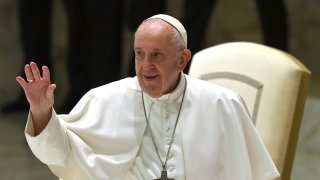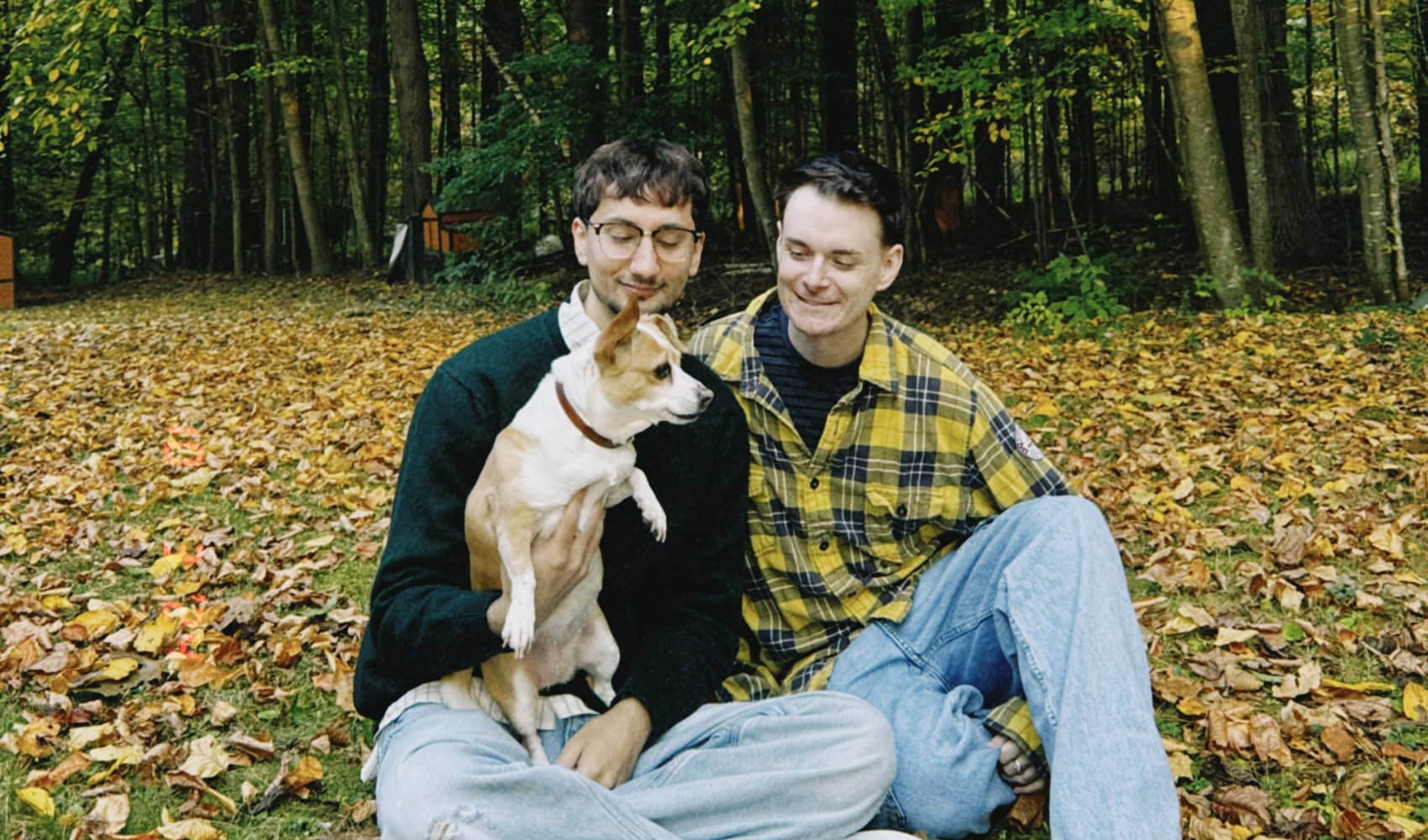
Pope Francis is using his pulpit to call attention to climate migration.
"When we look, what do we see? Many are being devoured in conditions that make it impossible to survive. Forced to abandon fields and shorelines, homes and villages, people flee in haste carrying just a few souvenirs and treasures, scraps of their culture and heritage," the pope wrote in a statement released Tuesday. "They set out in hope, meaning to restart their lives in a place of safety. But where they mostly end up are dangerously overcrowded slums or makeshift settlements, waiting on fate."
The pope published his call for collective focus on migrants forced to leave their homes because of climate change's effects on their homelands as a preface to a booklet titled, "Pastoral Orientations on Climate Displaced People," which includes recommendations for how to address the crisis.
Reasons people around the world may have to leave their homes due to climate change include changes in rainfall, changes in flooding patterns or rising sea levels, to name a few.
Get top local stories in Southern California delivered to you every morning. >Sign up for NBC LA's News Headlines newsletter.
A report from the World Bank predicted more than 140 million people could move within their country's borders by 2050 due to climate change. The climate migrants are in addition to other migrants who are forced to move for political and social reasons, the report says.
In February, President Joe Biden ordered an interagency report on the current and future implications of climate migration.
Money Report
The first step toward addressing the issue is to see those who are suffering and to not look away, Francis writes.
"Where it starts is with each one's seeing, yes, mine and yours," the pope writes.
The response people have to those who are suffering the effects of climate change may be dependent on how close or far it is from their doorstep, but that is insufficient, the pope says.
"Whether it seems remote or whether we feel it close to home — depends on our taking the trouble to see the suffering that each story entails in order 'to become painfully aware, to dare to turn what is happening … into our own personal suffering and thus to discover what each of us can do about it' (Laudato si' 19)," he writes, citing his own previous missive on the importance of taking care of the earth, "our common home."
In his written statement, the pope affirms his stance that climate change is the result of human behavior, a fact which NASA supported with "direct evidence" in a report released on March 25, but which some other religious groups have disavowed. (About 80% of Americans now believe that human action "has at least partly" been causing global warming, according to a survey published in August by the Washington DC-based nonprofit, Resources for the Future.)
"When people are driven out because their local environment has become uninhabitable, it might look like a process of nature, something inevitable," the pope writes. "Yet the deteriorating climate is very often the result of poor choices and destructive activity, of selfishness and neglect, that set humankind at odds with creation, our common home."
See also:
60 largest banks have invested $3.8 trillion in fossil fuels since the Paris Agreement
This Google X spin-off is offering a pathway to heat and cool your home with clean energy
Here's what you need to know about 'the social cost of greenhouse gases'—a key climate metric






